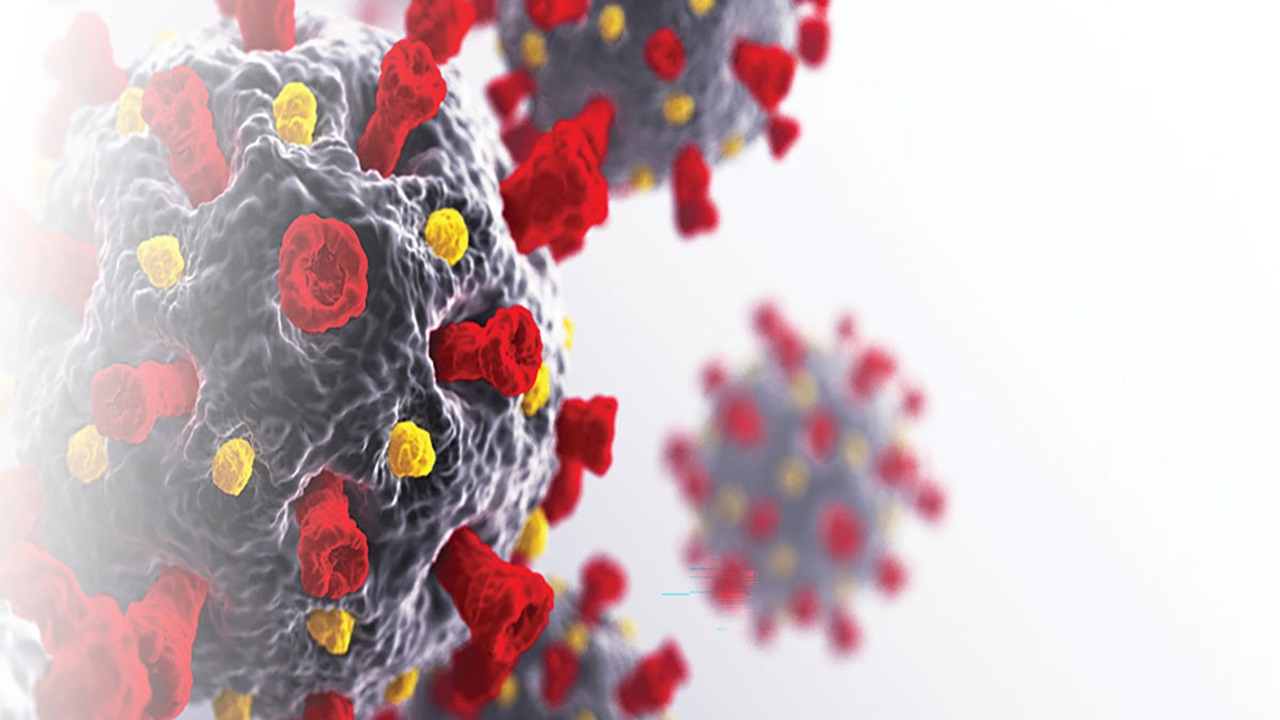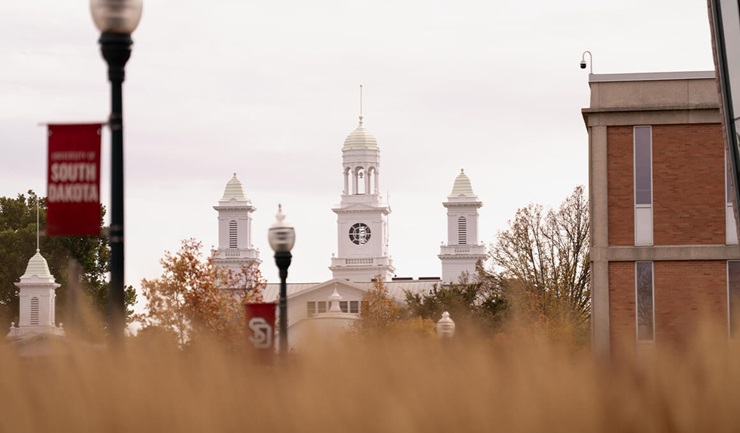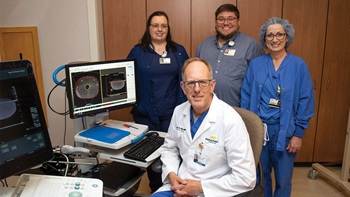Voices from the Pandemic

Heidi Moline was an English major in the University of South Dakota’s Honors Program when she discovered that she aspired to a career in public health. “I researched and wrote a thesis as part of the Honors program,” Moline explained, “and my project involved working with young American Indians on issues related to sexually transmittable diseases.” That project had her interning for a summer at South Dakota’s Department of Health, and she admired the people she met there. “There’s so much important work happening in state health departments all over the country,” she said.
After earning a B.S. degree in English, Moline, a Rapid City native, entered the graduate program in public health at Emory University in Atlanta, Georgia, an institution with a long history of producing public health leaders. Not surprisingly, her experience at Emory while earning a Master of Public Health (MPH) degree deepened and diversified her interest in health care. “While at Emory,” she said, “I realized that many areas of public health depend on sound public policy.”
Moline then took a job in Washington, D.C., with The Union of Concerned Scientists, a prestigious non-profit organization that focuses on using data and science to influence public policy and legislation. “That was a great opportunity,” Moline reported, “for me to better understand the translation of science to federal health policy and law.”
After nearly two years in Washington, Moline decided to return to school and to South Dakota, and she was accepted into USD’s Sanford School of Medicine. Pediatrics became her special interest while studying at the school of medicine, and she matched as a pediatric resident at the University of Minnesota. “I wanted to do my residency there,” she explained, “because their program supported my interest in public health, and also because Minnesota has one of the strongest state health departments in the country.”
At Minnesota, Moline was able to blend patient caregiving and public health. “I couldn’t have asked for better training,” she exclaimed. “For me and my interests, it was the full package.”
Moline enjoyed the program so much that she decided to stay on as chief pediatrics resident. A significant experience as chief resident was participating on a team of University of Minnesota scientists and experts from the Centers of Disease Control and Prevention (CDC) who identified enterovirus-D68 (EV-D68) in the spinal fluid of a local child suffering from acute flaccid myelitis (AFM). That youngster was one of six children in a worrisome outbreak of AFM – the largest outbreak in the state. Moline served as the lead author for the report that described the cases and research. The contributions of Moline and the team were considered a breakthrough in understanding the virus and how it affects children.
Always looming on Moline’s horizon was a more intense involvement in public health issues. She heard about the CDC’s Epidemic Intelligence Service, and the disease detective work it conducted aligned with her interests, so she applied for a fellowship there. “I was thrilled to be accepted,” recalled Moline, “but couldn’t have imagined I’d be working at the CDC in Atlanta during a public health crisis.”
Moline is now a lieutenant commander with the Public Health Service, and she serves as a medical epidemiologist. Her assignment is with CDC’s National Center for Immunization and Respiratory Diseases, making her a natural fit for supporting the COVID-19 emergency response.
"We’re living in challenging times. But I’m optimistic. There are many dedicated, talented people working to solve the pandemic." – Dr. Heidi Moline
As a newly trained disease detective, Moline was first deployed to an American Indian reservation in Oklahoma, to help a tribe there and the Indian Health Service develop a health information infrastructure involving records and statistics related to the pandemic. “COVID-19 requires new types of data collection and compilation systems,” she explained.
Following her deployment to Oklahoma, she served on a CDC task force to plan the implementation and monitoring of COVID-19 vaccines. “My colleagues and I are focused on the effectiveness side of it,” she said. “We’re planning studies to determine how effective each vaccine candidate is in protecting individuals and communities-at-large against COVID-19.”
That team consists of hundreds of public health scientists and physicians, and most of the team are in Atlanta. “This is, obviously, a challenging time for public health,” reported Moline. “It feels like it must have felt at NASA during the space race. People are working around the clock. It’s been all hands on deck for many months.”
Moline reminds us that collaboration is a critical component when developing sound strategies to defeat pandemics. “COVID-19 has shown us that partnerships between public health officials and physicians,” she explained, “are vital to advancing the scientific knowledge enabling successful public health decisions to be made.”
“Although it’s been hard to watch spiking numbers in South Dakota and elsewhere,” Moline sighed, “I’m optimistic because of the incredible public health work being done by many dedicated, talented people working together to solve this pandemic.”
"This is a challenging time for public health. It feels like it must have felt at NASA during the space race. People are working around the clock. It’s been all hands on deck for many months."



